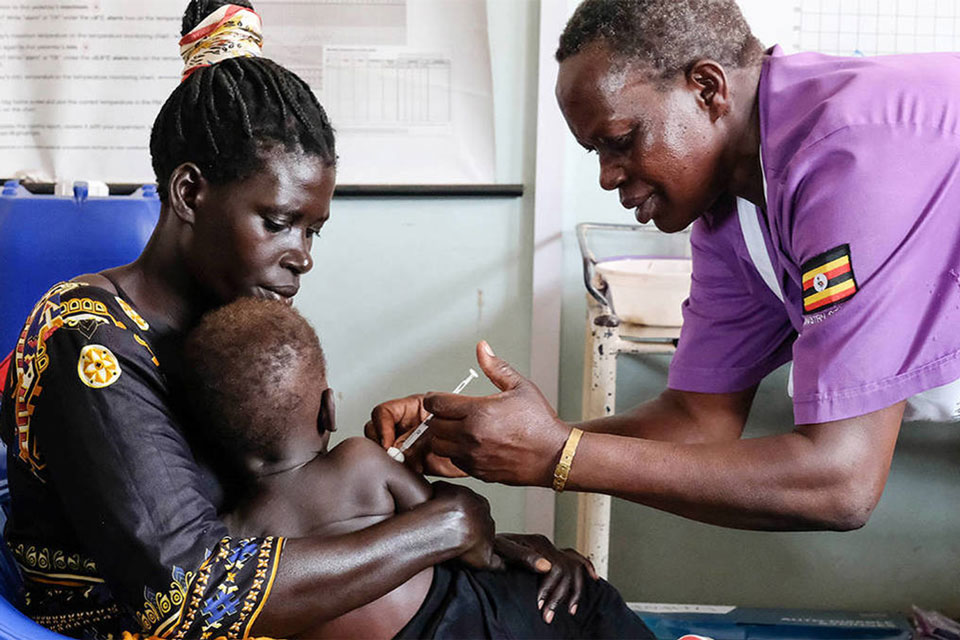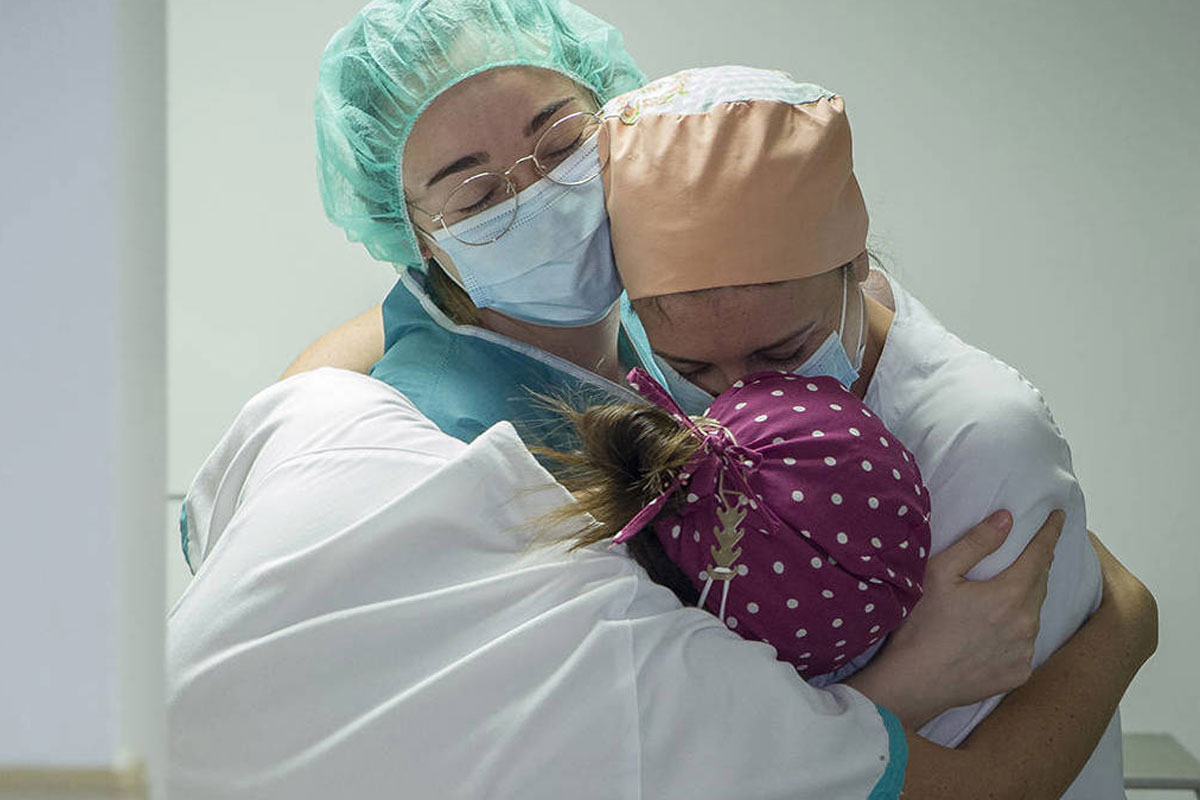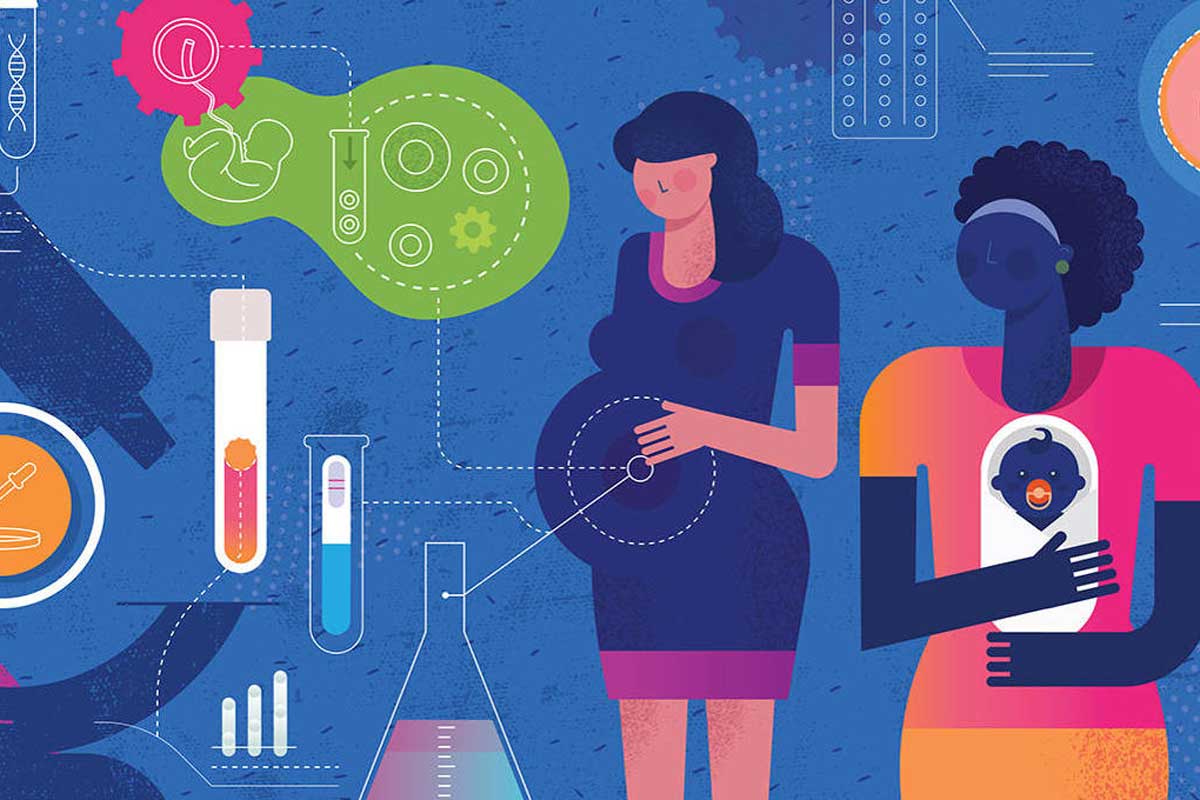The key to global public health
If today’s leaders fail to ensure that all countries have the resources they need to identify new disease outbreaks and respond quickly, we will all be at risk, argue Gavi's Sania Nishtar and the European Investment Bank's Nadia Calvino.
- 22 May 2025
- 4 min read
- by Project Syndicate , Sania Nishtar

The COVID-19 crisis taught the world fundamental lessons about the importance of global cooperation to fight disease. But that cooperation is under strain, as are the conditions needed to sustain it. Future funding for health and science is being called into question, and cuts to development assistance by some traditional donors are casting doubt on our ability to prevent and respond to infectious diseases in the world’s most fragile countries.
No one is safe, until everyone is safe.
To ensure future resilience to pandemics, these gaps must be filled. The key to success lies in strong, innovative new partnerships between multinational organizations, private- and public-sector institutions, and civil society. We already know from recent experience that strong global partnerships work. Five years ago, we managed to overcome vaccine nationalism (the hoarding of limited supplies) in formulating the global response to COVID-19.
Gavi, a global alliance of public, private, and civil-society groups, partnered with the European Investment Bank Group (EIB) – the financing arm of the European Union, owned by its 27 member states – to mobilize €600 million ($720 million) in donor funding toward the COVAX initiative. Without this funding, COVAX would not have been able to move at the speed and scale that ultimately delivered nearly two billion vaccine doses. More than 100 (mainly) poor countries benefited because we had the foresight to respond to the pandemic cooperatively.
Nor were the benefits confined to these countries. Recall the mantra of the pandemic: “No one is safe, until everyone is safe.” More widespread and prolonged shutdowns meant greater disruptions to supply chains and the global economy. The faster we could provide access to testing, monitoring, and contact-tracing technologies, the better our ability to detect new variants of the virus and adapt accordingly. It was lab techs in South Africa who first identified and called attention to the notorious Omicron variant.
Recognizing the imperative to be even better prepared for the next pandemic, we have continued to build on this previous success. The EIB is providing Gavi with €1 billion in liquidity to accelerate access to vaccines for viruses with pandemic potential (such as Ebola), and to support routine vaccination against preventable diseases like measles, malaria, and the the human papillomavirus (HPV), which is a leading cause of cervical cancer. (A new vaccine against tuberculosis could also be on the horizon.)
This innovative approach has also inspired others and catalyzed their efforts. For example, the G7 development-finance institutions, together with the EIB, MedAccess, and the International Finance Corporation, are working on a new surge-funding instrument to mobilize vaccines, therapeutics, diagnostics, and other medical goods that low- and lower-middle income countries will need to respond to future pandemics.
Boosting regional vaccine production is a critical priority. Africa accounts for 20% of the world’s population, but produces just 0.1% of the world’s supply of vaccines. Building the continent’s vaccine-manufacturing base is a key part of any strategy to strengthen overall pandemic preparedness.
Have you read?
Here, too, the EIB’s partnership and financial innovation are a game changer. Gavi’s $1.2 billion African Vaccine Manufacturing Accelerator – backed by over €750 million from European governments, as well as institutions including the EIB – is designed to dismantle barriers to local vaccine production. To help Africa achieve vaccine sovereignty, the EIB is also directly financing production facilities in Ghana, South Africa, and Senegal, through the Institut Pasteur de Dakar.
By combining our expertise, the EIB-Gavi partnership helps countries build stronger health systems and improve their ability to respond to pandemics and save lives. As leaders of mission-driven organizations, we know that protecting global health demands bold action. By investing in innovation and ensuring that resources reach those who need them most, we can reduce the risk of future outbreaks, safeguard communities, and create a world where health crises no longer derail lives and livelihoods.
Viruses don’t care about politics, visas, tariffs, or wars. They respond to tough immune systems and effective vaccines. If we fail to ensure that all countries have the resources they need to identify new outbreaks and respond quickly, we will all be at risk. We cannot protect ourselves, our loved ones, or our economies without global cooperation. Investing in innovative global health partnerships is our best defense against the next big outbreak, implying large returns in terms of worldwide stability and security.








